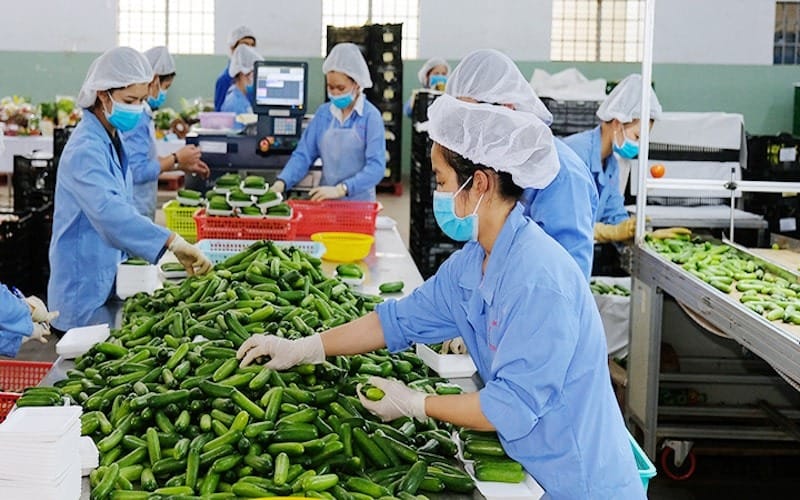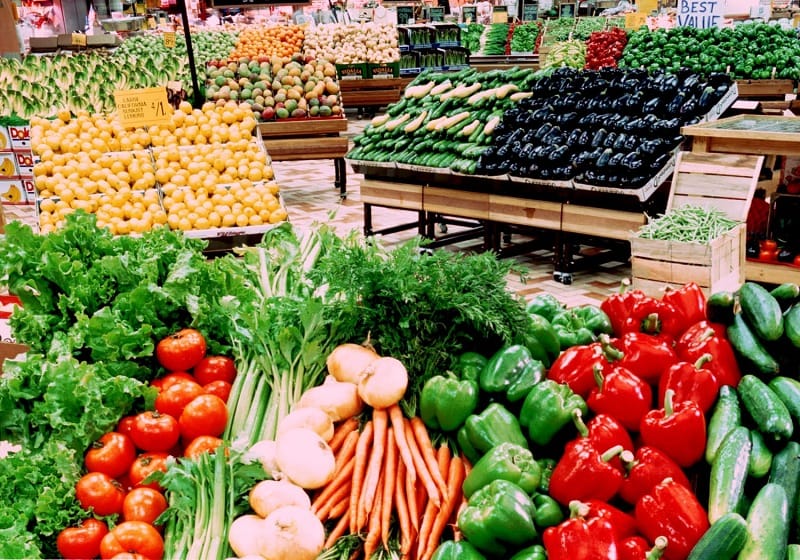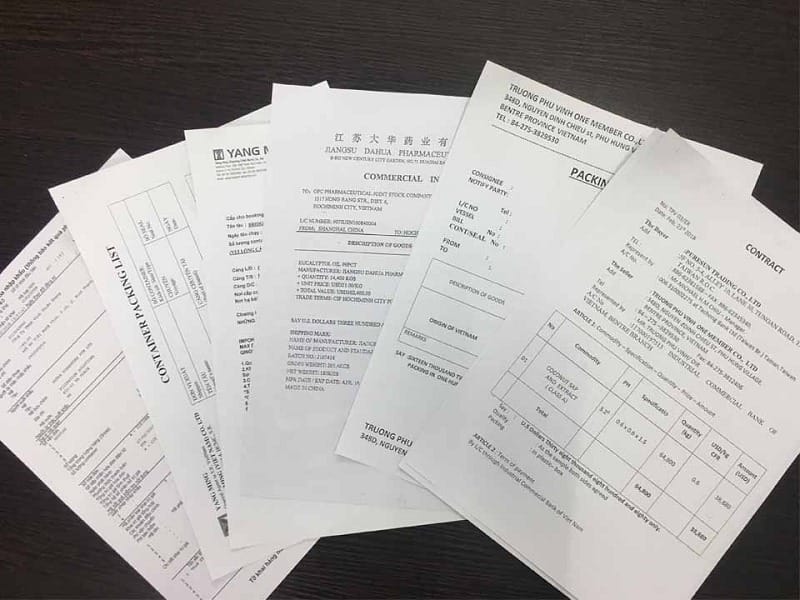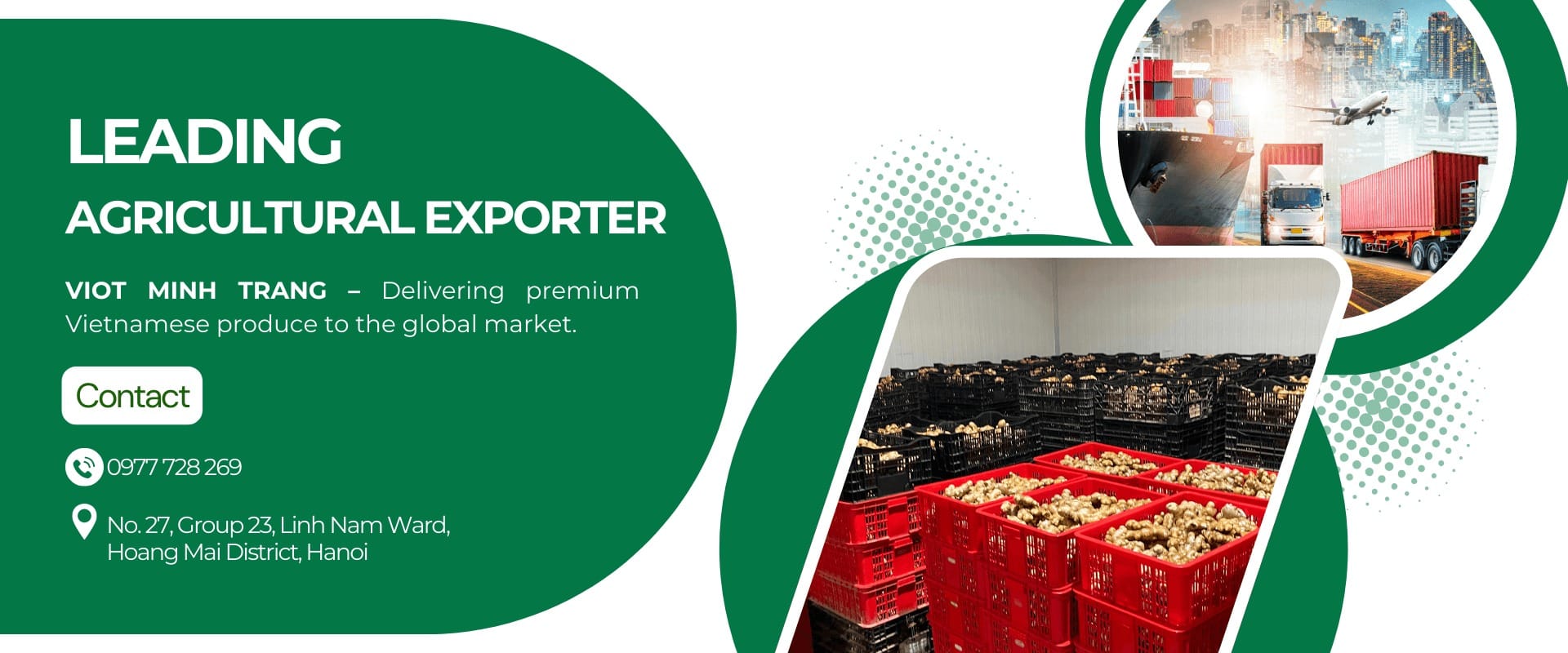In the context of deep international economic integration, bringing Vietnamese agricultural products to the world is not only a how to export agricultural products but also a process that requires careful preparation and strict compliance with regulations. To successfully conquer demanding markets, businesses need to clearly understand and fully meet agricultural export conditions of each country. This is not only a technical barrier but also an opportunity to improve the quality and reputation of Vietnamese agricultural products. This article will analyze in detail the importance, mandatory conditions, necessary documents and how businesses like Viot Minh Trang meet these requirements.
Why must we meet the conditions for exporting agricultural products?
Meeting the agricultural export conditionsIt is not only a simple legal requirement from import markets, but also a key strategy, bringing many strategic and sustainable benefits to both businesses and the national agricultural sector.
In an increasingly competitive global market with strict requirements for quality, safety, and social responsibility, compliance with these conditions becomes a vital factor, determining the ability to penetrate and maintain the position of Vietnamese products.
Specifically, the main reasons include:
Ensuring food quality and safety
The core and indispensable goal when exporting agricultural products is to ensure quality and safety for consumers. Agricultural products are essential goods that directly affect human health, so import markets always set very high standards for food hygiene and safety, including control of pesticide residues, antibiotics, heavy metals, and pathogenic microorganisms.
Strict compliance with these conditions not only helps the product maintain its inherent quality but also builds strong trust from customers and international partners, thereby protecting brand reputation and avoiding legal and medical risks.
Compliance with legal regulations and market requirements
The world is a complex web of different regulations and standards. Each country and market region (e.g. EU, USA, Japan, China) has its own set of laws that apply to imported agricultural products, from phytosanitary regulations, animal quarantine, growing area/packaging facility codes, to packaging and labelling directives.
Failure to respond to even agricultural export conditions even the smallest violation can lead to serious consequences such as goods being refused import, being heavily fined, or even being permanently banned, causing huge economic and reputational damage to the business. On the contrary, proactively grasping and complying with these regulations will open up favorable customs clearance, helping businesses access and expand market share in potential markets.
Minimize risk and loss
The process of exporting agricultural products often includes a long and complex supply chain, going through many stages from harvesting, preliminary processing, processing, packaging, sea/air transportation, to storage and distribution. When the agricultural export conditions are met in a strict and scientific manner, each step in this chain is strictly controlled.
This helps to minimize the risks of product damage due to impact, temperature, humidity; prevent cross-contamination, microbial growth; and minimize product loss. As a result, businesses can save significantly on costs arising from handling damaged goods, compensation, or re-export, thereby optimizing profits and improving business performance.
Building national reputation and brand
In addition to direct economic benefits, the continuous supply of high-quality agricultural products that consistently comply with international standards is also a key factor for Vietnam to build and strengthen its image as a reputable, transparent and responsible agricultural exporter. When each shipment meets standards and is well received, the trust of international partners and consumers in Vietnamese agricultural products will increase.
This not only increases the value and selling price of each specific product but also creates an overall competitive advantage for the entire Vietnamese agricultural sector in the international arena, opening up more opportunities for cooperation and sustainable development in the future.

Conditions for exporting agricultural products
See now:
Agricultural Product Export Procedures: Latest and Detailed Guidelines from Authorities
Mandatory conditions for exporting agricultural products from Vietnam
To be successful in how to export agricultural products to go global, Vietnamese businesses not only need quality products but also have to meet a series of requirements agricultural export conditions are mandatory and regulated by both Vietnamese law and the laws of importing countries. Strict compliance with these requirements is a solid foundation for goods to be cleared smoothly and accepted in the most demanding markets.
Below are the main conditions that exporters need to pay special attention to:
Product quality
Agricultural products must meet registered quality standards or specific requirements of the importing market. This includes indicators of size, color, freshness, ripeness, firmness, nutritional content, and other sensory characteristics. For fresh agricultural products, quality control from the growing area, ensuring that the product is not crushed or damaged by insects is of utmost importance.
For processed products, standards for ingredients, moisture content, and manufacturing processes must be followed.
Food safety
This is one of the agricultural export conditionsThe most stringent and is the top concern of import markets. Products must be safe for consumers, free of pesticide residues, toxic chemicals, heavy metals exceeding the permitted level, and not contaminated with pathogenic microorganisms (such as E.coli, Salmonella).
To demonstrate this, businesses often need international food safety certifications such as HACCP (Hazard Analysis and Critical Control Points), ISO 22000 (Food Safety Management Systems), BRC (British Retail Consortium Global Standards), or FSSC 22000.
In addition, the application of sustainable farming standards such as GlobalGAP and VietGAP is also proof of a safe production process from the root.
Plant/animal quarantine
Depending on the type of agricultural product (fresh plants, plant products, animals or animal products), the goods must be inspected and issued a quarantine certificate by the competent authority of Vietnam (e.g. Plant Protection Department, Animal Health Department). This certificate confirms that the product does not carry pathogens, insects or organisms harmful to agriculture in the importing country. This regulation is particularly strict for fresh fruits, vegetables and unprocessed products, requiring compliance with quarantine protocols agreed between the two countries.
Packaging and labeling
Export packaging specifications packaging must not only protect the product but also comply with the specific regulations of each market. Packaging must be suitable for the product characteristics (moisture-proof, shock-proof, ventilated), the mode of transport (sea, air) and especially the material standards (for example: non-harmful materials, recyclable, free of prohibited substances).
Labels must be clear and contain complete information in the language of the importing country, including: product name, origin, ingredients, net weight, expiry date, manufacturer/exporter information, importer information, barcode and warning symbols (such as “fragile goods”, “refrigerate”…).
Traceability and growing area/packing facility codes
This is agricultural export conditions is becoming increasingly urgent, especially for high-end markets. Products must have clear and transparent traceability from the growing/farming area, primary processing facility to the processing and packaging plant. Many markets also require a production area code (PCC – Production Code Cluster) and a packing facility code (PCF – Packing Facility Code) issued by a competent authority of Vietnam and approved by the importing country.
This helps to tightly control the entire supply chain, ensuring product sustainability and safety.

Mandatory conditions for exporting agricultural products from Vietnam
See now:
Summary of 5 popular agricultural drying methods today
Documents and certificates required when exporting agricultural products
To legalize and ensure the smooth customs clearance process, exporting enterprises need to prepare a complete set of documents according to the regulations how to export agricultural products international standards. This is proof that the product and business have met the agricultural export conditions obligatory:
Legal documents of the enterprise
Including Business Registration Certificate (with import-export business), Import-Export License (if there are special requirements for some items), tax code, and documents related to production and processing capacity (for example: certificate of eligibility for food production/business).
International Sales Contract
This is the most important legal document, defining the terms and conditions of the transaction between the buyer (importer) and the seller (exporter), including type of goods, quantity, price, delivery terms (Incoterms), payment method, delivery time…
Commercial Invoice and Packing List
A commercial invoice is a payment document that shows in detail the value of goods, quantity, product description, seller and buyer information. A packing list provides detailed information on packaging, number of packages, net/gross weight, and dimensions of each package, helping the counting and customs clearance process to be smooth.
Bill of Lading (B/L or Air Waybill – AWB)
Is a transport document issued by a shipping line (Bill of Lading for sea transport) or an airline (Air Waybill for air transport), confirming that the goods have been received for transport to the specified destination. This is also evidence of ownership of the goods.
Certificate of Origin (C/O)
Certification of origin of goods that are completely produced or undergo significant processing in Vietnam. C/O is agricultural export conditions important, especially when businesses want to enjoy tariff incentives under Free Trade Agreements (FTAs) of which Vietnam is a member.

Certifications required when exporting agricultural products
Phytosanitary Certificate (PC)
Mandatory for all products of plant origin (fresh fruits, vegetables, nuts, wood…).issued by the national plant quarantine agency, certifying that the shipment has been inspected and does not carry pests, insects or pathogens harmful to agriculture of the importing country.
Food safety/health quarantine certificate (Health Certificate – HC)
Applies to products of animal origin (aquatic products, meat…) or processed foods.issued by a competent health or veterinary authority, confirming that the product meets food hygiene and safety standards and is suitable for human consumption.
International quality certifications (GlobalGAP, Organic, HACCP, ISO 22000, Halal, Kosher, BRC…)
These certifications are not always agricultural export conditionsmandatory for customs clearance, but is a huge competitive advantage, helping products easily penetrate high-end markets and affirm their reputation. These certifications prove that businesses comply with strict production, quality management and food safety processes according to international standards.
See now:
Comparing Drying Methods Agricultural: Which Is the Optimal Choice?
VIOT Vietnam – Fully meeting the requirements for exporting agricultural products
To make effective use of the agricultural export opportunities is open and responsive to all agricultural export conditions in the strict global market, the role of pioneering enterprises is extremely important. Viet Minh Trang is proud to be the leading unit in the field of providing clean agricultural products, committed to bringing high quality products and strictly complying with the requirements for exporting large quantities to international markets.
We strictly manage and control more than 3,000 hectares of raw material areas in key provinces, from Nghe An, Thanh Hoa, Hoa Binh, Son La, Dak Lak to Hanoi. The cultivation process is strictly applied according to VietGAP/GlobalGAP standards, ensuring that the input raw materials are always clean, safe and of consistent quality.

VIOT Vietnam – Fully meeting the requirements for exporting agricultural products
In particular, Viet Minh Trang’s modern processing factory has achieved strict international certifications such as ISO 22000, HACCP, GMP, Halal This not only affirms product quality but also demonstrates compliance with regulations on food safety, hygiene and sustainable production processes – key factors that help Vietnamese agricultural products conquer the most demanding markets.
We guarantee that all products from Viot Minh Trang are of good quality agricultural export conditions with the highest quality, from fresh fruits, frozen vegetables to dried or ground products. Viot Minh Trang is ready to supply large quantities, diverse products and flexible OEM/ODM packaging services according to the requirements of international partners.
Mastering and complying with the agricultural export conditions is the golden key to help Vietnamese enterprises firmly step on the path of international integration. From product quality, food safety and hygiene, traceability to international certifications and standard packaging processes, each factor contributes to creating success. With serious and professional investment, along with the support of reputable units such as Viot Minh Trang, Vietnamese agricultural products will continue to effectively utilize the agricultural export opportunities, enhance value and affirm sustainable position in the global market.





Tác giả Tưởng Mạnh Biên
Là chuyên gia giàu kinh nghiệm trong lĩnh vực xuất khẩu nông sản. Với nhiều năm làm việc, nghiên cứu và trực tiếp tham gia vào các hoạt động sản xuất, kinh doanh và xuất khẩu nông sản, tác giả chia sẻ những kiến thức chuyên môn sâu sắc cùng các bài học thực tiễn giá trị nhằm hỗ trợ doanh nghiệp.
- Địa chỉ: Số 27, Tổ 23, Lĩnh Nam, Hoàng Mai, Hà Nội
- Email: viotvietnam.vn@gmail.com
- SĐT: 0977 728 269